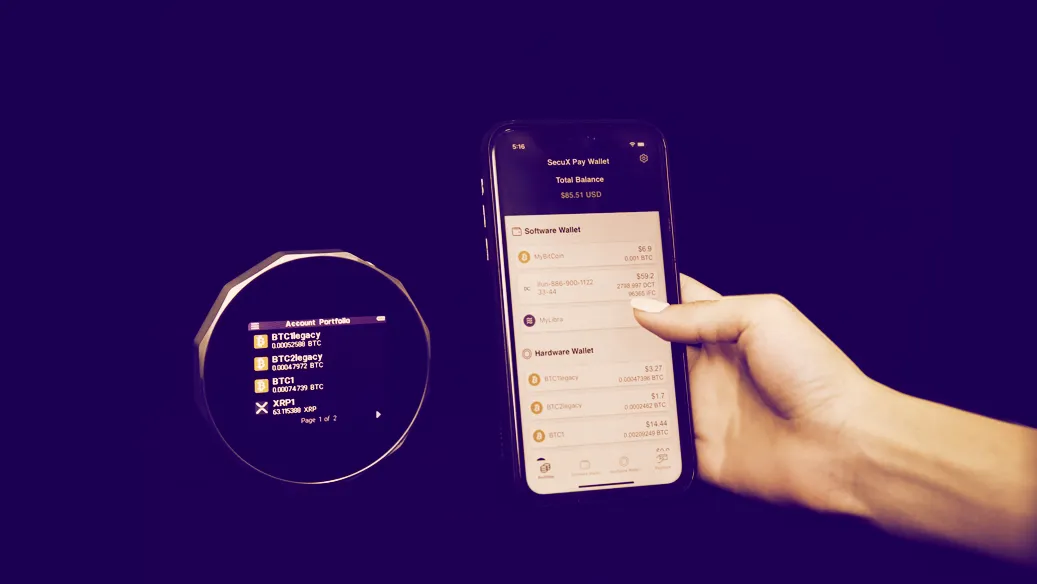Blockchain security company SecuX today launched a crypto retail payment system, aimed at brick-and-mortar shops, that comprises a mobile app, payment module, and hardware wallet.
The Taiwanese company launched the product at the Consumer Electronics Show, which is taking place in Las Vegas this week.
The retailer doesn’t require access to the internet in order to function, but, interestingly, the buyer does.
Here’s how a sale works: a buyer scans a QR code connected to a system run by SecuX. Then, the buyer’s phone connects with SecuX’s server, which processes the transaction. Once the payment’s complete, the SecuX’s server sends a signal to the buyer, notifying them that the payment’s complete. The buyer’s app then sends a bluetooth signal to the retailer, which tells them that the transaction is complete.
The new system contains three components: First, a white-label mobile app that supports most cryptocurrencies. Second, a payment terminal that can connect to any existing proof of sale system, such as a corner shop or a vending machine. Third, a hardware wallet that combines its Secure Element chip that can only accept crypto payments from the hardware terminal to the shop owner.
SecuX isn’t the first to design a system that verifies crypto payments without an internet connection. In fact, Stéphane Djiane, the CEO of Global P.O.S., a point-of-sale systems provider for retailers, is pushing a system that does the same thing, and it’s due to hit retailers like Decathlon sometime this year.
Dijane’s system works slightly differently: wallets contain multi-sig addresses, so when you make a payment, the application sends a signal to the Global P.O.S API, who holds the other key. This prevents double-spending.
But both companies depend on people going out and making bitcoin payments in meatspace. And so far, that's been few and far between.

